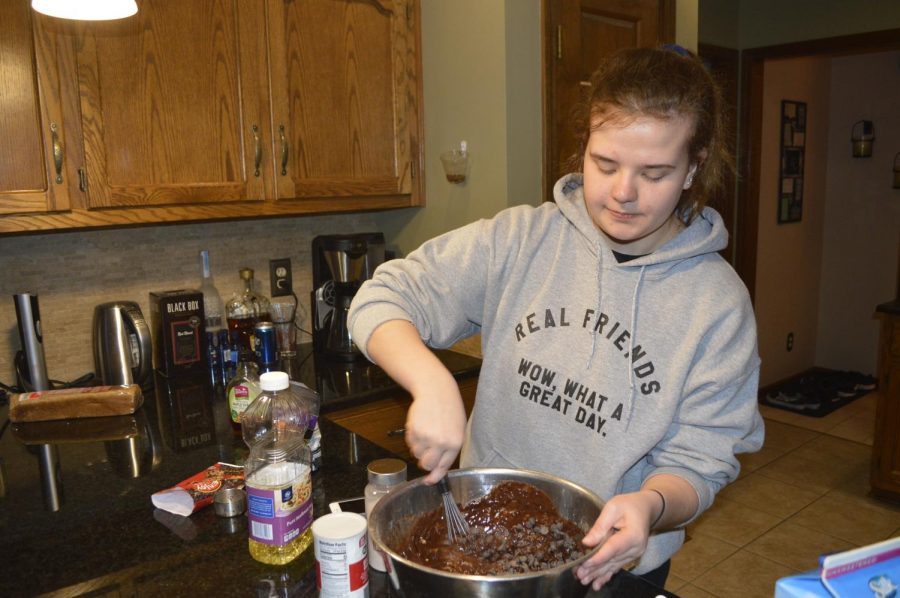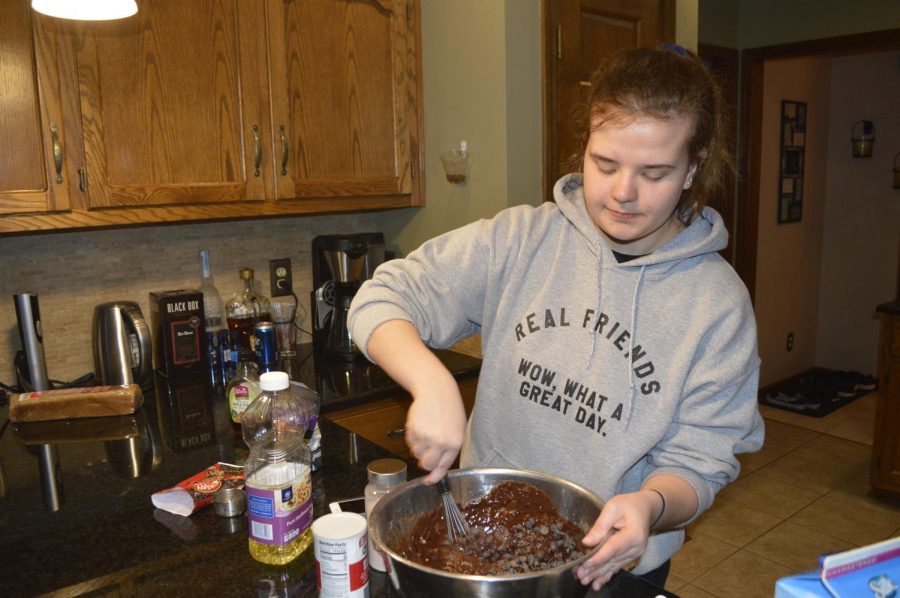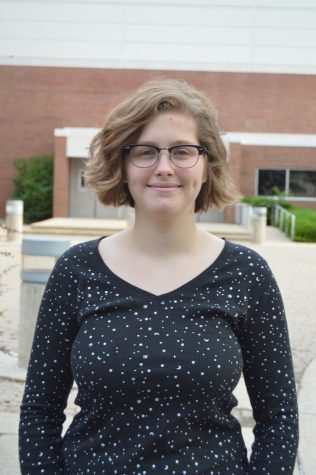Meat-free lifestyle impacts more than just the body
On Jan. 20, senior Olivia Barnett cooks vegan brownies. Barnett is a part of the 6 percent of Americans who are vegan. For her, one challenge she has faced is her love for baking since many traditional recipes are not vegan.
January 29, 2018
Fifty-six billion animals are killed annually for food, according the organization Animal Equality. This demand results in mass breeding and mistreatment of these animals. Facts like these are what led senior Olivia Barnett to change her lifestyle to end this.
“(Being vegan) is for the animals,” Barnett said, “and it is for the lives that I don’t feel like I have the right to be taking.”
According to the organization One Green Planet, about 6 percent of Americans are vegan, and Barnett is a part of this 6 percent. While others chose to do this for health reasons, Barnett chose this lifestyle because she didn’t want to contribute to animal cruelty and climatic neglect.
Barnett elaborates that meat production can be horrible for the animals involved. She said that she was disturbed by the veal industry and the continual forced pregnancy of female cows to ensure dairy production. She didn’t like that the animals are subjected to neglect and cruelty, so she chooses not to eat meat in order for her to not contribute to this.
One challenge Barnett has faced with becoming vegan is fueling her love to bake while still trying to follow her strict new diet. To do so, instead of changing her diet completely, she has just started substituting other foods in place for non-vegan products. After doing so, Barnett says she noticed a difference in her food tolerance, for example, as eating dairy upsets her stomach, something that didn’t happen before her shift to veganism.
However, Barnett says that the foods she bakes are very oily and not really healthy, but she would prefer that her health would suffer rather than animals lose their lives.
“We don’t need to kill animals just to live,” said Barnett.
According to Professor of Ecology in Cornell University’s College of Agriculture and Life Sciences David Pimentel, the grain that goes to feeding livestock is enough to feed 800 million people. Feeding America reports that 6 million people in the U.S. go hungry, and that the grain used to be fed livestock could instead go to try and eradicate this hunger.
Junior Katie Arnold is one person who recognizes this. She is a vegetarian and would rather the grain go to people who are hungry than mass-produced animals.
“More grains go to feeding animals to feed americans than goes to children starving,” Arnold said.
The mass breeding of animals results in poor treatment too as the industry can also cause deforestation also in order to provide grazing room for them. Arnold doesn’t think that her abstaining from eating meat will affect the industry’s animal breeding rates very much, but she does think her conscience will feel clearer.
Arnold also thinks that if there was less of a necessity for the massive populations of cattle then there would be less methane production. According to Penn-State Research, cows contribute to 6-7 percent of U.S. greenhouse gas emissions.
Arnold doesnt think that her abstaining from eating meat is going to have a massive effect on the industry, because “money is money,” but she doesn’t want to contribute to the problem. Both Arnold and Barnett continue to have a meat free diet and a clear conscience.




